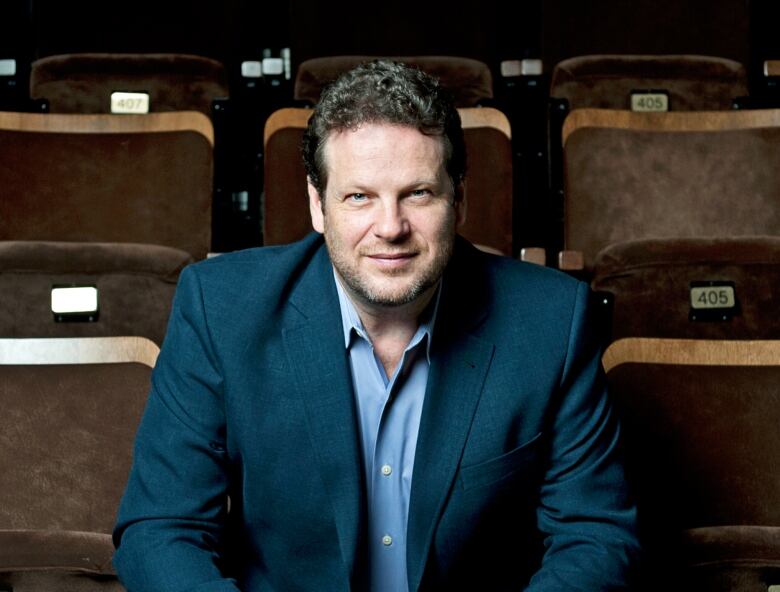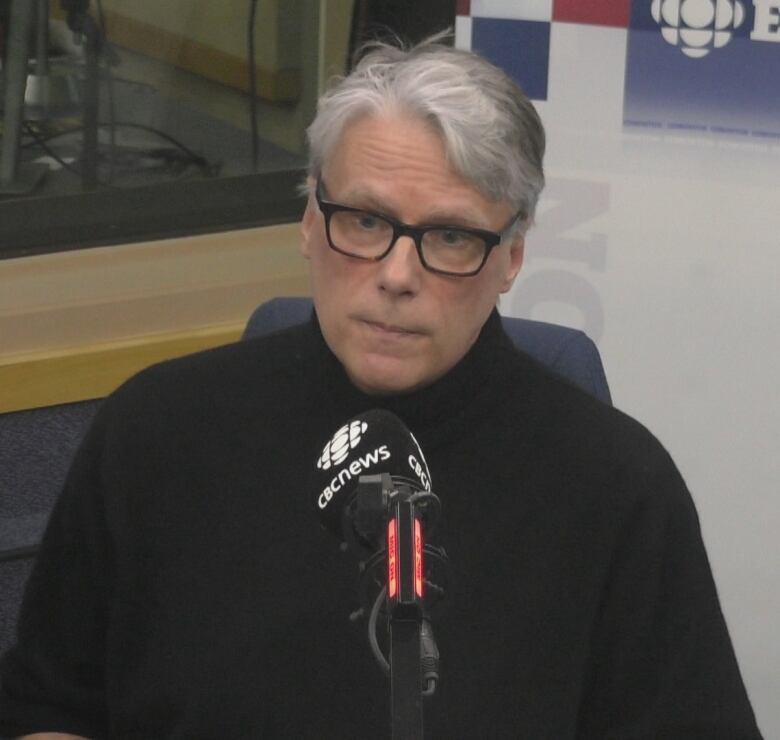'I was asked to improvise an orgy': Edmonton actors address sexual harassment in theatre community
Sexual harassment allegations out of a Toronto theatre company have local actors sharing their own experiences

Edmonton actors are speaking out about their experiences on the heels of four women filing civil lawsuits against Toronto actor and director Albert Schultz for sexual harassment.
Hundreds of artists have signed a letter in support of the women. Schultz resignedon Jan. 4, but has promised to "vigorously defend" himself.
For local actors, theallegations against Schultz put the conversationabout consent front and centre, especially because theatre work can involve performing intimate scenes.
Actors portray all types of relationships, from husband and wife to brother and sister, with different levels of physical contact.
Now, with the Time's Up movement highlighting issues of sexual harassment facing women across society, there is a greater awareness of challenges facing female actors, said David Ley, professor of drama at the University of Alberta.
"The more that we hear about this in news, then I think the harder it is to justify behaviour by saying, 'It's OK, that's just the way it is in the theatre. We've always done it this way,' " Leysaidin an interview with CBC Edmonton'sRadio Active.

Edmonton actor Natasha Napoleao calls this a time of deep reflection for both sexes.
"Women are reviewing their past and revisiting their history, just like men are," Napoleao told Radio Active.
"[A] majority of men probably aren't going to have their names on social media or on the news," Napoleao said. "They're going to be sitting and thinking about things they've said or done, that, in today's context, would go over very differently. And I think ultimately that's a healthy thing."
In the same interview, Edmonton actor Sarah Feutlsaid that in a rehearsal setting, it can be difficult to find the line for what is physically permissible in portraying an intimate relationship.
"It's also tough to find out sometimes what are issues that you want to let slide and let just fall by the wayside," Feutl said. "And what are issues where you want to address them, speak up, and potentially invite much larger conversations."
Power imbalances
Napoleaoand Feutl graduated from the Bachelor of Fine Arts acting program at the University of Alberta. Both have plenty of examples in their careers of when boundaries were breached.
When Feutl was 18, she was asked to improvise an orgy an experience she calls very uncomfortable. She felt like she couldn't disagree with what she was asked to do.
"We often compare it to stage fighting, where you never expect people to improvise a fight sequence," Feutl said. "And yet, that expectation is all the time placed on intimate scenes and relationships.
"That needs to be built in from when you're very young that consent is required for all acts, not just violent ones."
Feutlsaid that once, at a public event, a male director pulled her shirt down.
"I just had to go along with it, which, in retrospect, I wish I had addressed. But at the time, I thought, 'I'd like to work for this person. I'm not going to make this into an issue.' "
He started to laugh and snicker as he was doing it- Natasha Napoleao, actor
For a kissing scene in a play, Napoleao said a male actor stuck his tongue in her mouth "as a joke" after the lights faded to black.
"He started to laugh and snicker as he was doing it," Napoleao said. "The audience couldn't tell what was happening."
It wasn't something they had agreed on. She felt like she had no one to turn to and that it wasn't worth making into a big deal.
"He meant it as a joke," Napoleao said. "And you buy into that."

"You may be concernedthat if you're a person who says no, that the word will get around that you're not a person who is willing to dig in and do the work," Ley said.
"I think that enough people in the community have stood up and said, 'This is not right.' "
'Changing for the better'
Everyonefrom directors to stage managers to actorscan play a role in ensuringopen communication for consent, Feutl said, adding that managers can play an intermediary role if there is a power imbalance.
Ley said the theatre world is now experiencing a "sea change" that has beendeveloping for a while. He said theCanadian Actor's Equity Association's "Not in Our Space" campaign is an example of dealing with sexual harassment and bullying head on, given that support is blossoming.
Some companies are now hiring intimacy coaches to help choreograph and navigate challengingscenes.
"I would expect that we will see more of that," Ley said. "But I would hope that what that will teach us is that, even without that person in the room, we have the ability as individual performers to ask for that kind of permission."
There are ways of establishing boundaries personally and professionally, Ley said, such as discussing permission for physical contact ahead of time.
Napoleao agrees. Her advice is to check in before a show, whether to determine the safety parameters for a stage fight or something more intimate.
"There's nothing wrong with me going up to an actor and being like, 'Hi, we've got to do this tonight again, let me check in with you,' Napoleao said.
'' 'How are you feeling? Are you good to do this? Do I have your consent?'We can check in with each other. That's a very simple step to take."












_(720p).jpg)


 OFFICIAL HD MUSIC VIDEO.jpg)
.jpg)



























































































